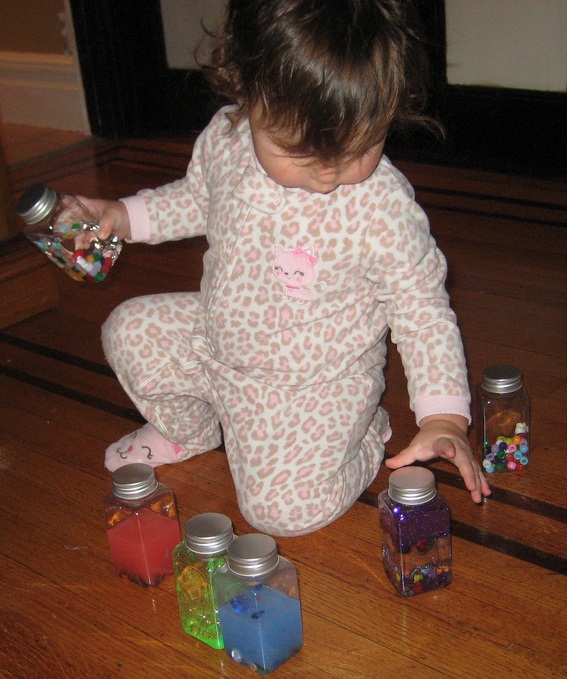Emerging Skills:
“Emerging Skills” are those that infants and toddlers are working on or are just mastering. The first three years are a time of constant emerging skills; it is a time of figuring out the world and what it does. As caregivers of children ages 0-3, knowledge and recognition of these emerging skills is necessary. Dr. Jenn describes the growth, development and learning of children ages 0-3 as climbing a ladder. Everyone starts at the bottom and works their way up. Parent PhD’s Infant/Toddler Series will describe the understandings and capabilities of children ages 0-3 in the following age divisions: 0-3 months, 3-6 months, 6-9 months, 9-12 months, 1-2 years and 2-3 years. Knowledge and skills will be described based on a “typically developing child.” It is important to remember that not every child does everything at the exact same time, so don’t worry if a child you are observing isn’t exactly meeting the criteria described. As long as they reach it at some point around the age group, they are doing just fine. Also remember that when we climb up the ladder, we can also take a few steps down and re-learn something or re-experience something. The ladder is not a one-way climb. Although the rate or speed of development varies for each child, the general order that children ages 0-3 learn skills is largely the same.
Nature vs. Nurture:
Always remember that life experience has a lot to do with what skills young children acquire and when they acquire them. The concept of “nature vs. nurture” is discussed often in early childhood education. Nature is the biological things that you are born with. This comes from your biological parents, and includes things such as your physical stature, appearance and even temperament. Nurture is your life experiences. Both influence how children grow and development. Parent PhD believes that nurture has a much larger effect on growth and development than nature. The experiences you have in the world from the day you are born decide how you act and approach life, as well as how you learn and grow.
Flipping the “light switches:”
The quality of a child’s life in the first three years has a profound effect on the rest of their lives. All of their experiences affect how their brain develops and how they grow as a person. From birth the brain is full of synapses, or as Dr. Jenn calls them, “light switches.” Positive and nurturing experiences flip those light switches up, and the child acquires knowledge and skills. Once the switch is up, the child uses it often, and it is continually strengthened. If a child does not have a variety of positive and nurturing experiences, the light switches are never flipped. By about age 12, any switches that aren’t “flipped” die away.
So…our job as caregivers of young children is to provide them with a variety of enriching and positive experiences. If we do, they will have a brain full of knowledge and skills. But what do all of these good experiences look like? Parent PhD’s Infant/Toddler Series will tell you. We will give you, the caregiver, ideas about how to “flip the light switch” of the children that you are working with. And by the way, we are not just talking about cognitive knowledge and skills. Social and emotional knowledge and skills is just as, if not more, important than learning cognitive skills. Without healthy social/emotional development, cognitive skills cannot be learned and definitely not mastered.
A quick clue as to what these “good” experiences entail:
Children ages 0-3 learn by using their senses. As they hear, touch, taste, smell and see people and objects in their world, they learn. Therefore, this series will focus on how to provide developmentally appropriate experiences for children ages 0-3 that allows them to use as many senses as possible. That is how they learn – interaction with people and things. It’s easy to provide these experiences if you know what they are and when to use them.
